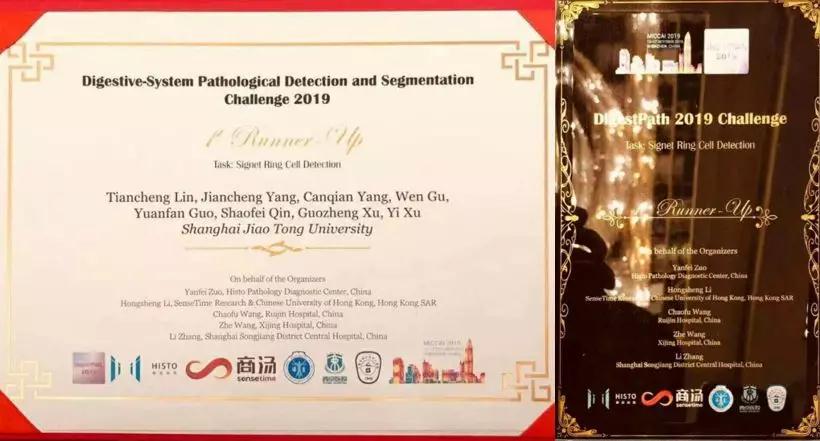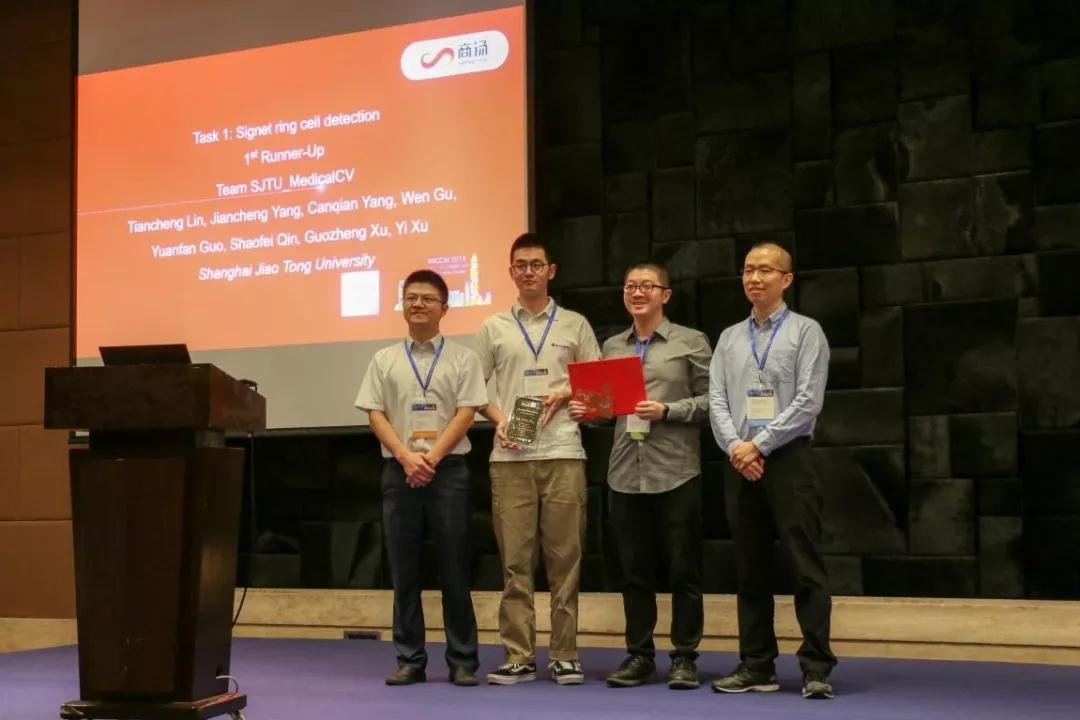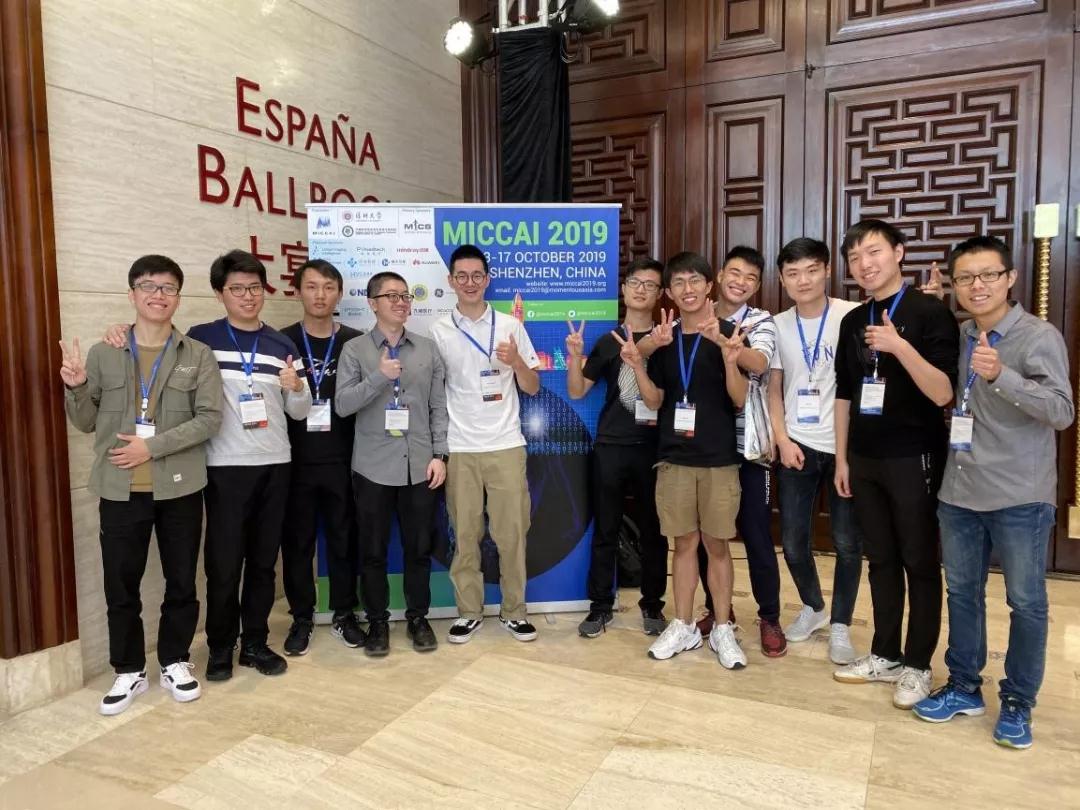On October 13-17, at the 22nd International Conference on Medical Image Computing & Computer Assisted Intervention (MICCAI2019) held in Shenzhen, the team of Associate Professor Yi Xu in Institute of Image Communication and Network Engineering has won good grades in DigestPath 2019 challenge (Digestive-System Pathological Detection and Segmentation Challenge 2019). They won the second place (1st Runner Up) in the signet cell detection and the fourth place in colonoscopy tissue segmentation and classification. The award-winning team under the guidance of associate professor Yi Xu consists of graduate students Tiancheng Lin, Jiancheng Yang, Wen Gu, Guozheng Xu and undergraduate students Canqian Yang, Yuanfan Guo and Shaofei Qin, a total of 7 students.


Competition Overview:
Digestpath 2019 challenge is hosted by SenseTime, HengDao Histo Pathology Diagnostic Center, Ruijin Hospital, Xijing Hospital and Shanghai Songjiang District Central Hospital. The goal of the challenge is to set up tasks for evaluating automatic algorithms on signet ring cell detection and colonoscopy tissue screening from digestive-system pathological images.
This is the first challenge and first public dataset on signet ring cell detection and colonoscopy tissue screening. Releasing the large quantity of expert-level annotations on digestive-system pathological images will substantially advance the research on automatic pathological object detection and lesion segmentation.

Award-Winning Algorithm:
The detection model proposes a solution to the partial labeling problem in signet cell detection. A novel decoupled gradient harmonizing loss (DGHM-loss) is advanced to calculate the gradient harmonizing loss for different regions. Therefore, the model can solve the optimization deviation and model over-fitting problems incurred by partial annotation, and finally improve the recall rate and robustness in the weakly supervised problem which commonly exists in medical images.
Abstract
The detection model proposes a solution to the partial labeling problem in signet cell detection. A novel decoupled gradient harmonizing loss (DGHM-loss) is advanced to calculate the gradient harmonizing loss for different regions. Therefore, the model can solve the optimization deviation and model over-fitting problems incurred by partial annotation, and finally improve the recall rate and robustness in the weakly supervised problem which commonly exists in medical images.
|
Extended Reading:
MICCAI is organized by the Medical Image Computing and Computer Assisted Intervention Society, which is currently recognized as a comprehensive academic conference in the fields of medical imaging computing (MIC) and computer-assisted intervention (CAI). It is the top international conference in the fields of medical imaging computing, medical robots, artificial intelligence, computer-assisted intervention, and computational biomedicine.
|